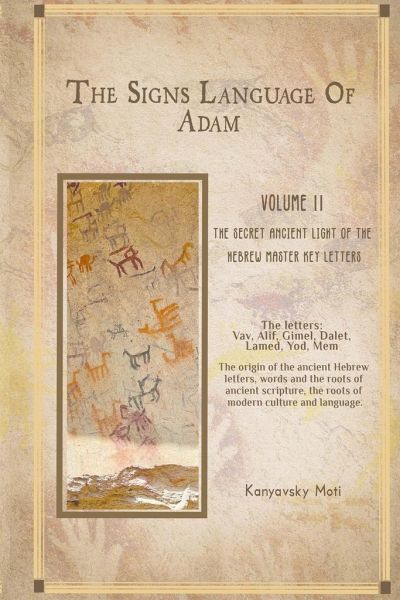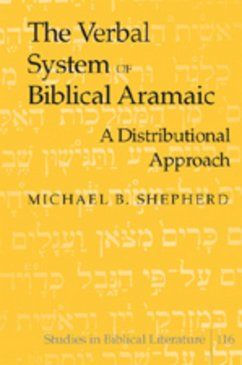
The Hebrew Signs language of Adam Volume II -The Secret Ancient light of the Hebrew Master Key letters
The origin of the ancient Hebrew letters, words and the roots of scripture, culture and language
Versandkostenfrei!
Versandfertig in 1-2 Wochen
71,99 €
inkl. MwSt.

PAYBACK Punkte
36 °P sammeln!
Volume II - Book Two: The Secret Ancient light of the Hebrew Master Key letters The letters: Vav, Alif, Gimel, Dalet, Lamed, Yod, Mem The origin of the ancient Hebrew letters, words and the roots of ancient scripture, the roots of modern culture and language How did ancient prehistoric symbols become letters, language and Hebrew letters which evolved into other languages? How were the German language, Indo-European, and other languages influenced by the ancient Hebrew language and "borrowed" their word roots from it? What is the oldest language? What do the words mean? Discoveries shed light o...
Volume II - Book Two: The Secret Ancient light of the Hebrew Master Key letters The letters: Vav, Alif, Gimel, Dalet, Lamed, Yod, Mem The origin of the ancient Hebrew letters, words and the roots of ancient scripture, the roots of modern culture and language How did ancient prehistoric symbols become letters, language and Hebrew letters which evolved into other languages? How were the German language, Indo-European, and other languages influenced by the ancient Hebrew language and "borrowed" their word roots from it? What is the oldest language? What do the words mean? Discoveries shed light on the beginnings of the ancient language. The building blocks of the Hebrew language and other later related languages. What they are made of? How they were created? and how they are used and why? The meaning of the ancient Hebrew symbols, from the beginning of human culture to the end of the ice age and the beginning of the agricultural revolution. We speak in words that come from symbols. Each symbol in the Hebrew language has an ancient meaning. There are no "coincidences" in the roots of the words. If your language interests you, and you want to understand the meaning of the words, spelling, and symbols you speak, this book is for you! This book is dedicated and intended for all Hebrew people scattered around the world, among the nations, wherever they are. A must-read book for any Hebrew, German, and English speaker! A revolution in language research! Thehebrewman57.wordpress.com/ www.facebook.com/profile.php?id=100074883584623 www.youtube.com/channel/UCOT-4e_zEs2Rz6QaUIu082w












